简体中文
繁體中文
English
Pусский
日本語
ภาษาไทย
Tiếng Việt
Bahasa Indonesia
Español
हिन्दी
Filippiiniläinen
Français
Deutsch
Português
Türkçe
한국어
العربية
What Is a Hybrid Market?
Abstract:A hybrid market is an exchange where traders may conduct deals using both automated trading tools and conventional floor brokers. The New York Stock Exchange is the most well-known example of a hybrid market in the United States (NYSE).
Market participants in hybrid markets can select between fully automated electronic exchange systems and human floor brokers who execute deals on the actual trading floor. Despite the fact that both techniques have merits and limitations, there has been a recent trend toward completely computerized order fulfillment.
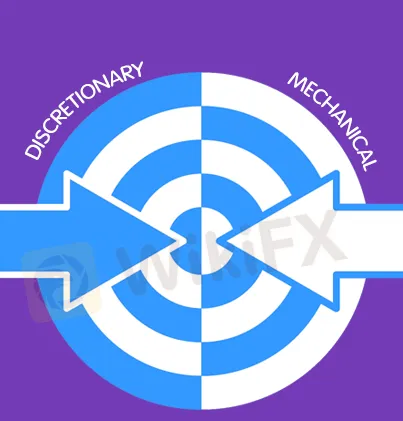
The advantage of hiring floor brokers is that they may use human judgment in the way and time in which they enter deals, despite the fact that they are slower and more expensive than entirely computerized systems. In general, they are only used by large institutional clients and a select few high-net-worth individuals. In order to make deals that are delicate in nature, these customers may need to rely on the human judgment and experience of a floor broker.
Investors placing big orders, for example, may wish to keep their order from becoming public information so that other investors do not attempt to front-run the transaction. Floor brokers could be able to help with such a deal by scouring their network of institutional customers for possible counterparties.
Clients may also rely on floor brokers' skills to spread out their trade executions across time in order to avoid impacting the price of the securities while the deal is being completed. For example, if an investor desires to acquire a large number of shares in a sparsely traded firm, putting the full purchase through a single order may cause the price to rise before all of the shares can be purchased, raising the transaction's overall cost. A floor broker may be trusted to keep a close eye on this transaction and issue buy orders progressively to keep the overall cost low.
Floor brokers, on the other hand, are generally unnecessary or impractical for retail investors. These investors will seldom be worried about impacting the market price of the assets they acquire because of their minimal transaction amounts.
A Hybrid Market in the Real World
For the majority of its existence, the NYSE, one of the world's oldest and most prestigious stock exchanges, relied on human trade brokers on its physical trading floor. The NYSE, on the other hand, made practically all of its listed equities available for electronic trading in January 2007. 1
Although these equities can still be traded on the trading floor by brokers, consumers can now choose for electronic executions. In practice, today's market participants place the great majority of transactions electronically, with human brokers mostly representing huge institutional customers. Many exchanges throughout the world have now completely abolished their physical trading floors, claiming the greater efficiency of electronic trading as the reason.
Disclaimer:
The views in this article only represent the author's personal views, and do not constitute investment advice on this platform. This platform does not guarantee the accuracy, completeness and timeliness of the information in the article, and will not be liable for any loss caused by the use of or reliance on the information in the article.
Read more
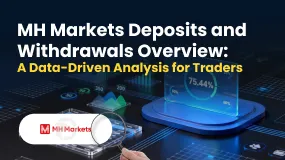
MH Markets Deposits and Withdrawals Overview: A Data-Driven Analysis for Traders
For any experienced trader, the integrity of a broker is not just measured by its spreads or platform stability, but by the efficiency and reliability of its financial plumbing. The ability to deposit and, more importantly, withdraw capital without friction is a cornerstone of trust. This review provides an in-depth, data-driven analysis of the MH Markets deposits and withdrawals overview, examining the entire fund management lifecycle—from funding methods and processing speeds to fees and potential obstacles. MH Markets, operating for 5-10 years under the name Mohicans Markets (Ltd), has established a global footprint. With a WikiFX score of 7.08/10, it positions itself as a multi-asset broker offering a range of account types and access to the popular MetaTrader platforms. However, for a discerning trader, the real test lies in the details of its payment systems and the security of their funds. This article dissects the MH Markets funding methods withdrawal experience, leveraging pr
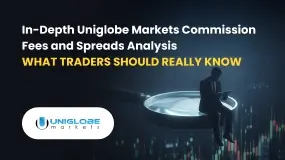
In-Depth Uniglobe Markets Commission Fees and Spreads Analysis – What Traders Should Really Know
For experienced traders, the cost of execution is a critical factor in broker selection. Low spreads, fair commissions, and transparent pricing can be the difference between a profitable and a losing strategy over the long term. This has led many to scrutinize the offerings of brokers like Uniglobe Markets, which presents a tiered account structure promising competitive conditions. However, a professional evaluation demands more than a surface-level look at marketing claims. It requires a deep, data-driven analysis of the real trading costs, set against the backdrop of the broker's operational integrity and safety. This comprehensive Uniglobe Markets commission fees and spreads analysis will deconstruct the broker's pricing model, examining its account types, typical spreads, commission policies, and potential ancillary costs. Using data primarily sourced from the global broker inquiry platform WikiFX, we will provide a clear-eyed view of the Uniglobe Markets spreads commissions prici
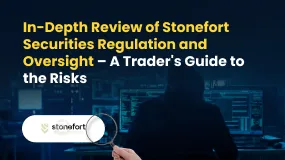
In-Depth Review of Stonefort Securities Regulation and Oversight – A Trader's Guide to the Risks
For experienced traders, the process of selecting a new broker transcends a simple comparison of spreads and leverage. It is a meticulous due diligence exercise where the integrity of the broker's regulatory framework is paramount. Stonefort Securities, a relatively new entrant in the crowded brokerage space, presents a complex and often contradictory profile. On one hand, it boasts a modern MT5 platform and a stream of positive user testimonials. On the other hand, it is shadowed by severe regulatory warnings that question the very foundation of its operations. This in-depth review focuses on the core issue for any long-term trader: Stonefort Securities regulation and oversight. We will dissect the broker's corporate structure, scrutinize its licensing claims, and analyze what the data implies for trader protection and fund security. For traders evaluating whether Stonefort Securities is a trustworthy partner, understanding these details is not just important—it is essential.
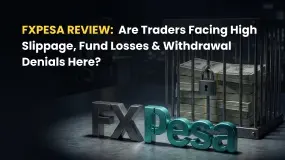
FXPesa Review: Are Traders Facing High Slippage, Fund Losses & Withdrawal Denials?
Do FXPesa support officials fail to pick up your calls when you raise fund withdrawal requests with the broker? But are these officials always open to you regarding fund deposits? Do you frequently spot slippage and stop-loss order execution errors on the FXPesa login? These issues are increasingly becoming common with this forex broker. Consequently, many traders have expressed their dissatisfaction with the broker online. In this FXPesa Review article, we have shared some of these complaints. Take a look!
WikiFX Broker
Latest News
The 350 Per Cent Promise That Cost Her RM604,000
In-Depth Uniglobe Markets Commission Fees and Spreads Analysis – What Traders Should Really Know
WikiFX's New Evaluation of ATM Capital LTD: Does its License Protect the Arab Investor?
Is Axi Legit? A Data-Driven Analysis of Its Regulatory Standing and Trader Feedback
How a Fake Moomoo Ad Led to the “New Dream Voyage 5” Scam
FXPesa Review: Are Traders Facing High Slippage, Fund Losses & Withdrawal Denials?
Trive Investigation: High Score, Hidden Risk - The Profit Paradox
CMC Markets Australia Revenue Surges 34%, But High-Net-Worth Clients Face Tax Phishing Threat
"Just 9 More Lots": Inside the Endless Withdrawal Loop at Grand Capital
GCash Rolls Out Virtual US Account to Cut Forex Fees for Filipinos
Currency Calculator



